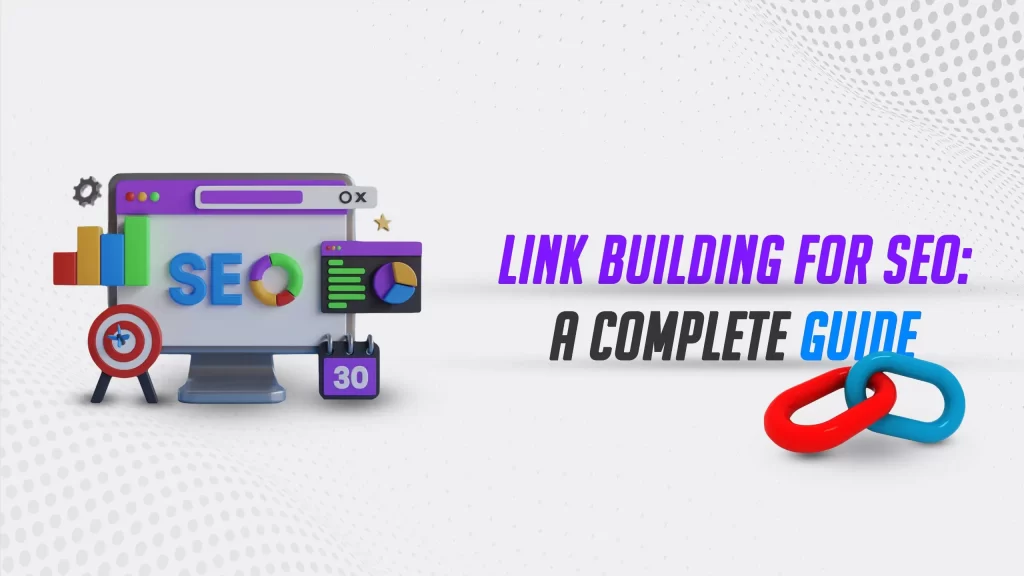In the ever-evolving landscape of digital marketing, search engine optimization (SEO) remains a cornerstone for online success. One crucial aspect of SEO that has stood the test of time is link building. Links are like the currency of the internet, and building a robust link profile is essential for achieving higher search engine rankings. In this comprehensive guide, we will delve into the intricacies of link building, its significance, and effective strategies to boost your website’s SEO.
Understanding the Importance of Link Building
Link building involves acquiring hyperlinks from other websites to your own. Search engines, especially Google, view these links as votes of confidence and authority. The more quality links your website has, the more likely it is to be considered a reputable source of information, thus improving its search engine rankings.
1. Quality Over Quantity
Not all links are created equal. Search engines place a higher value on quality links from authoritative and relevant sources. One high-quality link can often outweigh numerous low-quality links. Aim for links from reputable websites within your industry or niche, as these carry more weight in the eyes of search engines.
2. Relevance Matters
The relevance of the linking site to your content is crucial. A link from a website that shares similar themes or topics with yours is more valuable than a link from an unrelated source. Search engines analyze the context surrounding the link, so ensure that your link profile aligns with the content of your website.
Effective Link Building Strategies
Now that we understand the importance of link building, let’s explore some proven strategies to boost your website’s SEO.
1. Content Is King
Create high-quality, valuable content that naturally attracts links. When your content is informative, engaging, and solves problems for your target audience, other websites are more likely to link to it. Invest time and resources in developing content that stands out and offers unique insights.
2. Guest Posting
Guest posting involves writing and publishing content on other websites within your industry. This strategy not only helps you showcase your expertise but also allows you to include links back to your own website. Be selective when choosing guest posting opportunities, focusing on reputable websites with a genuine audience.
3. Broken Link Building
Identify broken links on other websites and offer your content as a replacement. Broken link building is a win-win strategy, as it helps the website owner fix a problem while providing you with an opportunity to gain a valuable link. Use tools like Check My Links or Broken Link Checker to find broken links within your niche.
4. Influencer Outreach
Leverage relationships with influencers and thought leaders in your industry. When influencers link to your content, it not only boosts your SEO but also exposes your website to a wider audience. Build genuine relationships with influencers, engage with their content, and create content that naturally aligns with their interests.
5. Skyscraper Technique
Developed by Brian Dean, the Skyscraper Technique involves finding content that performs well in your industry and creating something even better. After creating superior content, reach out to websites that linked to the original piece, informing them of your improved version. This technique often results in link acquisitions and increased visibility.
6. Social Media Promotion
While social media links are typically “nofollow” and don’t directly impact SEO, they play a crucial role in promoting your content. Increased visibility on social platforms can lead to more organic links from other websites. Share your content strategically on social media channels to maximize its reach and potential for link acquisition.
Measuring Success and Adapting Strategies
Effective link building is an ongoing process that requires monitoring and adaptation. Use tools like Google Analytics and Google Search Console to track the performance of your links. Pay attention to key metrics such as organic traffic, referral traffic, and the number of backlinks.
Regularly audit your link profile to identify and disavow any toxic or spammy links that may harm your SEO efforts. Google’s Disavow Tool allows you to communicate to the search engine which links to your site you’d like them to ignore.
Conclusion
Link building remains an integral part of any successful SEO strategy. By understanding the importance of quality links, implementing effective strategies, and adapting to changes in the digital landscape, you can enhance your website’s authority and visibility in search engine results.
Remember, the key to successful link building is a combination of creativity, relevance, and consistency. Stay informed about industry trends, continually refine your approach, and watch as your website climbs the search engine rankings, driving organic traffic and ensuring long-term online success.










